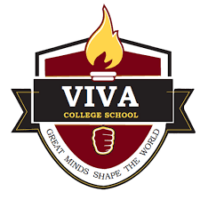Provide students with high-quality teaching in Biology.
ii. Inspire and passionately foster academic excellence in Biology.
iii. Prepare students for both internal and external examinations.
2. Roles and Responsibilities
a). Teaching and Learning
• Deliver engaging, effective, and inclusive lessons in Biology that cater to the needs of diverse
learners.
• Design and implement a curriculum aligned with national standards and school guidelines.
• Use varied teaching methods, including practical experiments, multimedia tools, and group
activities, to make learning interactive and impactful.
• Assess student performance through homework, tests, and assignments, providing timely and
constructive feedback.
b). Curriculum Development
• Develop lesson plans, schemes of work, and resources tailored to Biology topics.
• Keep up to date with developments in Biology and incorporate them into teaching.
• Collaborate with the Science Department to integrate cross-disciplinary themes.
c). Student Support and Guidance
• Provide academic support to students, including mentoring and individualized learning plans.
• Identify and address learning challenges or behavioral issues promptly and effectively.
• Prepare students for internal and external assessments, including O and A UNEB exams.
d). Classroom and Laboratory Management
• Ensure the laboratory is safe and well-organized for practical activities.
• Supervise students during practical sessions to promote safe and ethical scientific practices.
• Maintain inventory and request resources needed for Biology experiments.
e). Professional Development and Collaboration
• Participate in professional development activities to enhance teaching skills and subject
knowledge.
• Attend departmental and school meetings, contributing to discussions on curriculum and
pedagogy.
• Collaborate with colleagues to plan interdisciplinary projects and extracurricular science
programs.
VIVA COLLEGE SCHOOL
“Great Minds Shape the World”
f). School Community Engagement
• Promote interest in Biology through clubs, competitions, and events like annual science fairs.
• Communicate effectively with parents, guardians, and other stakeholders regarding student
progress.
• Uphold school policies and act as a role model for students.
3. Key Performance Indicators (KPIs)
• Student Performance: Percentage of students achieving or exceeding target grades in
Biology exams.
• Engagement: Evidence of using student interactive teaching methods and student
participation in lessons, labs, and extracurricular science activities.
• Lesson Quality: Regular positive feedback from lesson observations and student surveys.
• Resource Management: Effective use of laboratory materials and adherence to safety
protocols.
• Professional Growth: Participate in continuous professional development sessions every
term.
• Parental Feedback: Positive feedback from parents regarding academic progress and
support.
• Attendance Rates: Regularity of students attending classes.
• Behavior Management: Reduction in disruptive incidents and adherence to classroom rules.
• Lesson Quality: Observations and evaluations by peers or management.
• Curriculum Alignment: Coverage of all required topics within the specified timeframe.
• Adaptability: Tailoring lessons for students with diverse learning needs.
• Surveys: Positive feedback from student voice surveys regarding teaching effectiveness.
• Student Outcomes: Increased interest or enrollment in subjects taught by the teacher.
• Parent Feedback: Positive communication and engagement with parents.
• Community Contributions: Involvement in school-wide activities, events, or outreach
programs.
• Timely Reporting: Submission of grades, attendance records, and other administrative tasks
on time.
• Policy Adherence: Compliance with school policies and procedures.
• Extra-Curricular Participation: Contributions to clubs, sports, or other non-academic
programs.
• Technology Integration: Use of modern tools and platforms in the classroom.
• Creative Teaching Methods: Introduction of new and effective teaching strategies.
• Inter-Departmental Cooperation: Working effectively with colleagues across subjects.
• Team Goals: Contribution to department-level or school-wide objectives.
4. Qualification, Skills and Knowledge
Qualifications:
• Bachelor’s Degree (Upper) in your subject specialty from a reputable university.
• Must have scored in your respective subject specialty a Distinction and a B Principal pass at
your “O” and “A” level respectively.
• Hold a valid teacher, teaching certificate.
• Possess at least a minimum of 8 years of distinguished teaching experience
• Experience gained by teaching in Grade A school set up is required
• Must teach at both “O” and “A” Levels
• Demonstrate teaching of 2 subjects with distinction
• Commitment to fostering a diverse and inclusive educational environment is key
VIVA COLLEGE SCHOOL
“Great Minds Shape the World”
Essential Skills:
• Strong knowledge of Biology, including up-to-date understanding of scientific advancements.
• Proficiency in delivering curriculum content for secondary education levels.
• Excellent communication and presentation skills to explain complex concepts clearly.
• Classroom management skills to maintain discipline and foster a positive learning
environment.
• Organizational skills to plan lessons, manage resources, and assess student work.
• Adaptability to address the varying needs of students and incorporate new teaching
techniques.
• Proficiency in using technology for teaching, including virtual labs and online resources.
• Experience in mentoring or coaching students for competitions or projects.
Knowledge:
• Curriculum guidelines and assessment frameworks relevant to secondary school Biology.
• Pedagogical strategies for engaging students in STEM education.
• Laboratory safety regulations and protocols.
• Methods for evaluating and addressing individual learning needs.
I have received a copy of my Job Description, read and understood the general content of and the
requirements to perform this job.
It is not an exhaustive statement of responsibilities as my supervisor may from time to time adjust as
appropriate in order to meet the VIVA College School’s needs.










